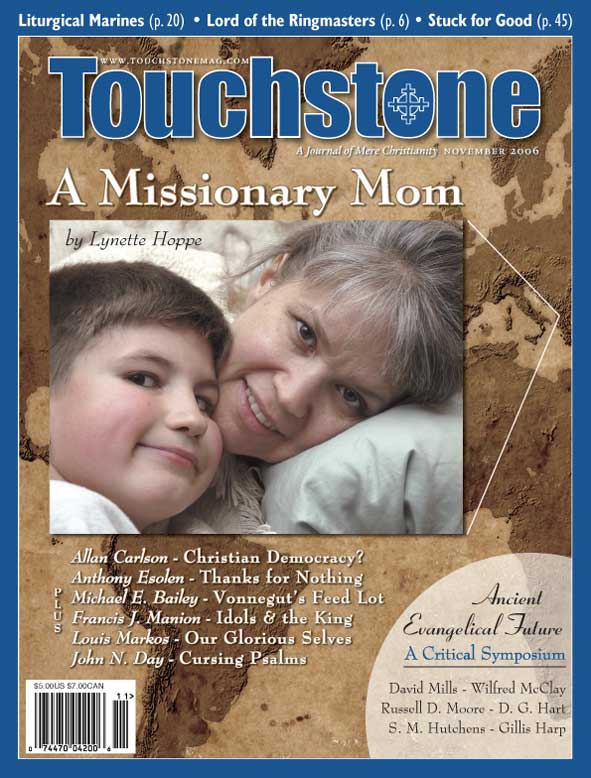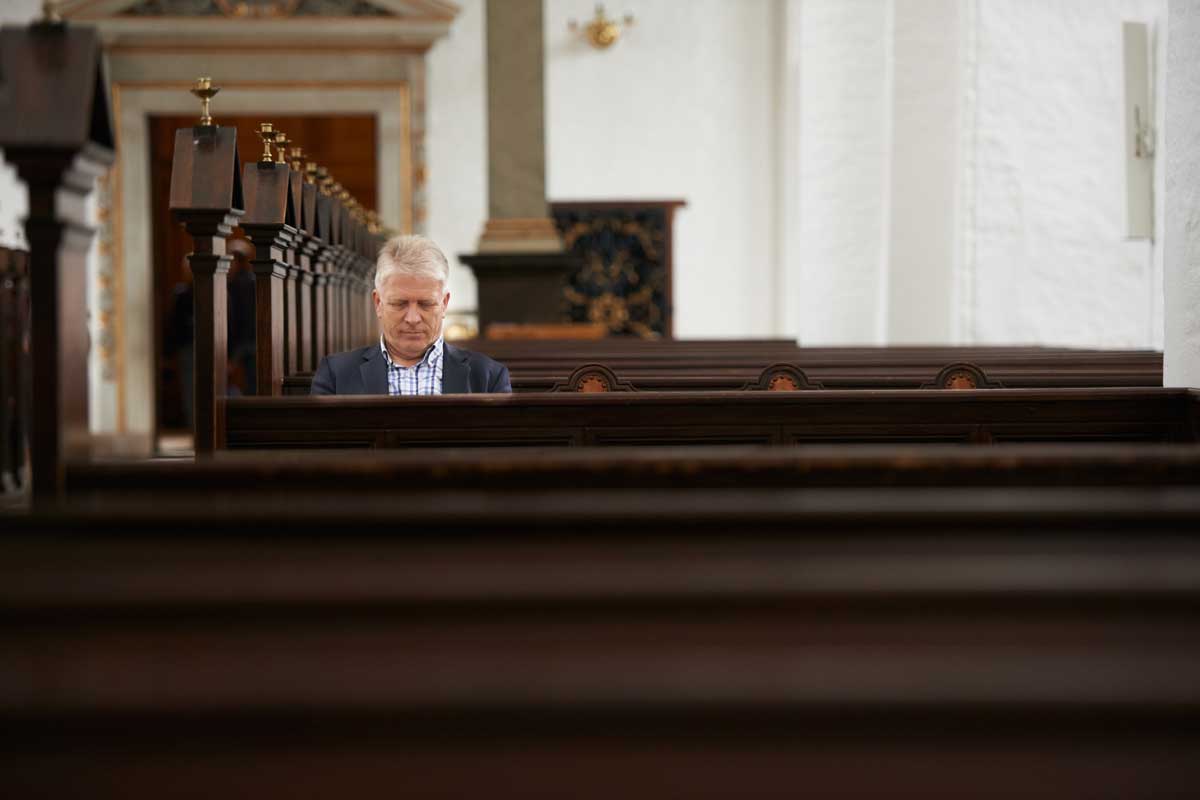Book Returns
Life in a Feed Lot
Kurt Vonnegut's Slaughterhouse-Five
by Michael E. Bailey
Despite modernity’s centuries-long turn toward the secular, the West has never shaken off the form of the Fall and Restoration as a way of making sense of our broken world. Even the liberation-obsessed 1960s, in which Kurt Vonnegut wrote his most influential and well-received novel, Slaughterhouse-Five, had its own variations on the theme, drawn in vulgarized fashion from the writings of earlier thinkers, most prominently Rousseau (who hated civilization), Marx (who hated capitalism), Freud (who hated religion), and Nietzsche (who hated everything else).
Painted in broad strokes, the 1960s version of the Fall and Restoration goes like this: Man never experienced a fall—he is innocent still—but the abuses of society cause him to do wicked things and to become dysfunctional in his own environment. Reforming society (or dropping out of it) is therefore a necessary step to restoring personal emotional and spiritual well-being.
THIS ARTICLE ONLY AVAILABLE TO SUBSCRIBERS.
FOR QUICK ACCESS:
Michael E. Bailey is Associate Professor of Government at Berry College in Mount Berry, Georgia. He serves as Deacon at First Presbyterian Church in Rome, Georgia, and is married and has three daughters.
subscription options
Order
Print/Online Subscription

Get six issues (one year) of Touchstone PLUS full online access including pdf downloads for only $39.95. That's only $3.34 per month!
Order
Online Only
Subscription

Get a one-year full-access subscription to the Touchstone online archives for only $19.95. That's only $1.66 per month!
bulk subscriptions
Order Touchstone subscriptions in bulk and save $10 per sub! Each subscription includes 6 issues of Touchstone plus full online access to touchstonemag.com—including archives, videos, and pdf downloads of recent issues for only $29.95 each! Great for churches or study groups.
Transactions will be processed on a secure server.
more from the online archives
calling all readers
Please Donate
"There are magazines worth reading but few worth saving . . . Touchstone is just such a magazine."
—Alice von Hildebrand
"Here we do not concede one square millimeter of territory to falsehood, folly, contemporary sentimentality, or fashion. We speak the truth, and let God be our judge. . . . Touchstone is the one committedly Christian conservative journal."
—Anthony Esolen, Touchstone senior editor










